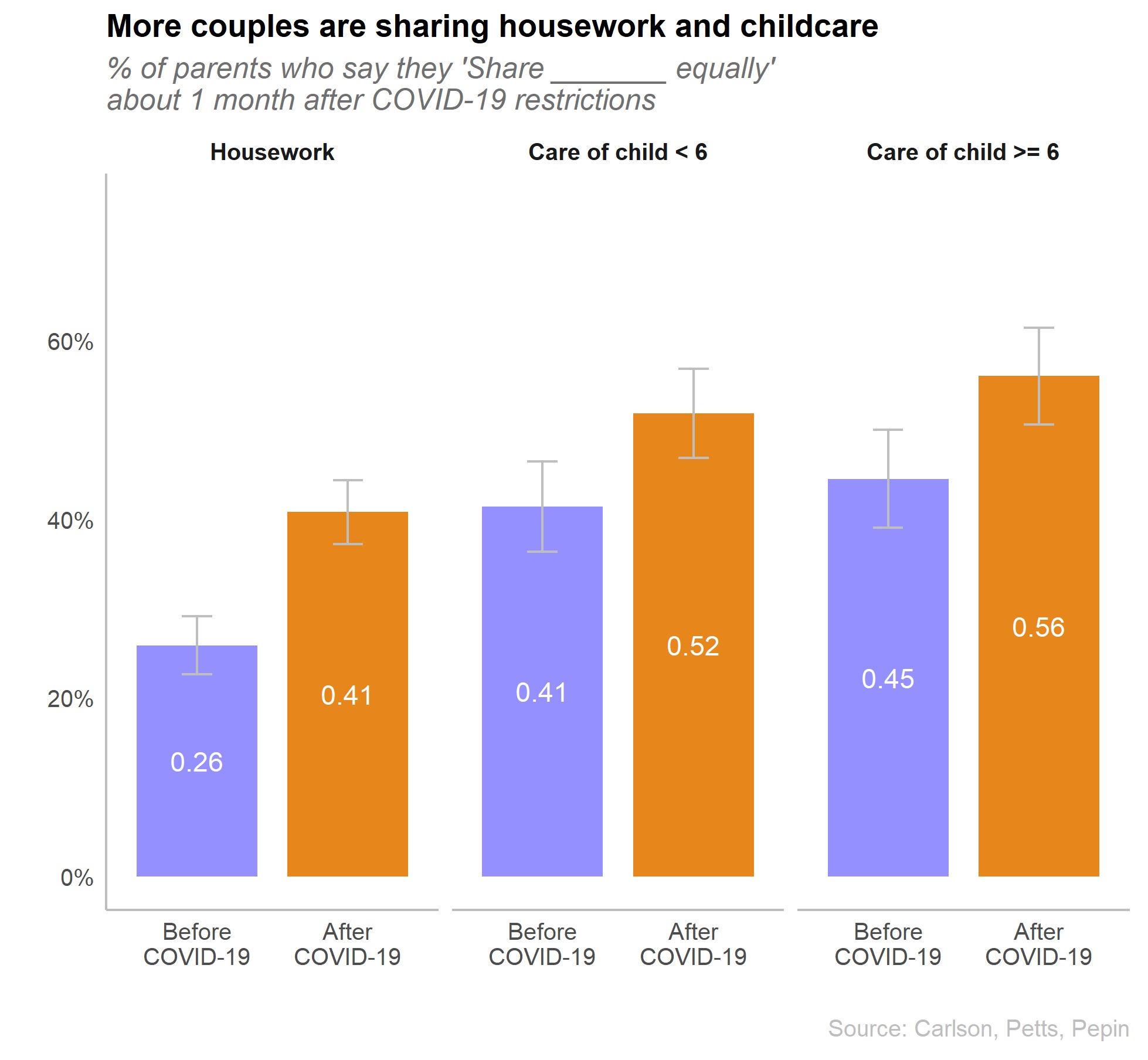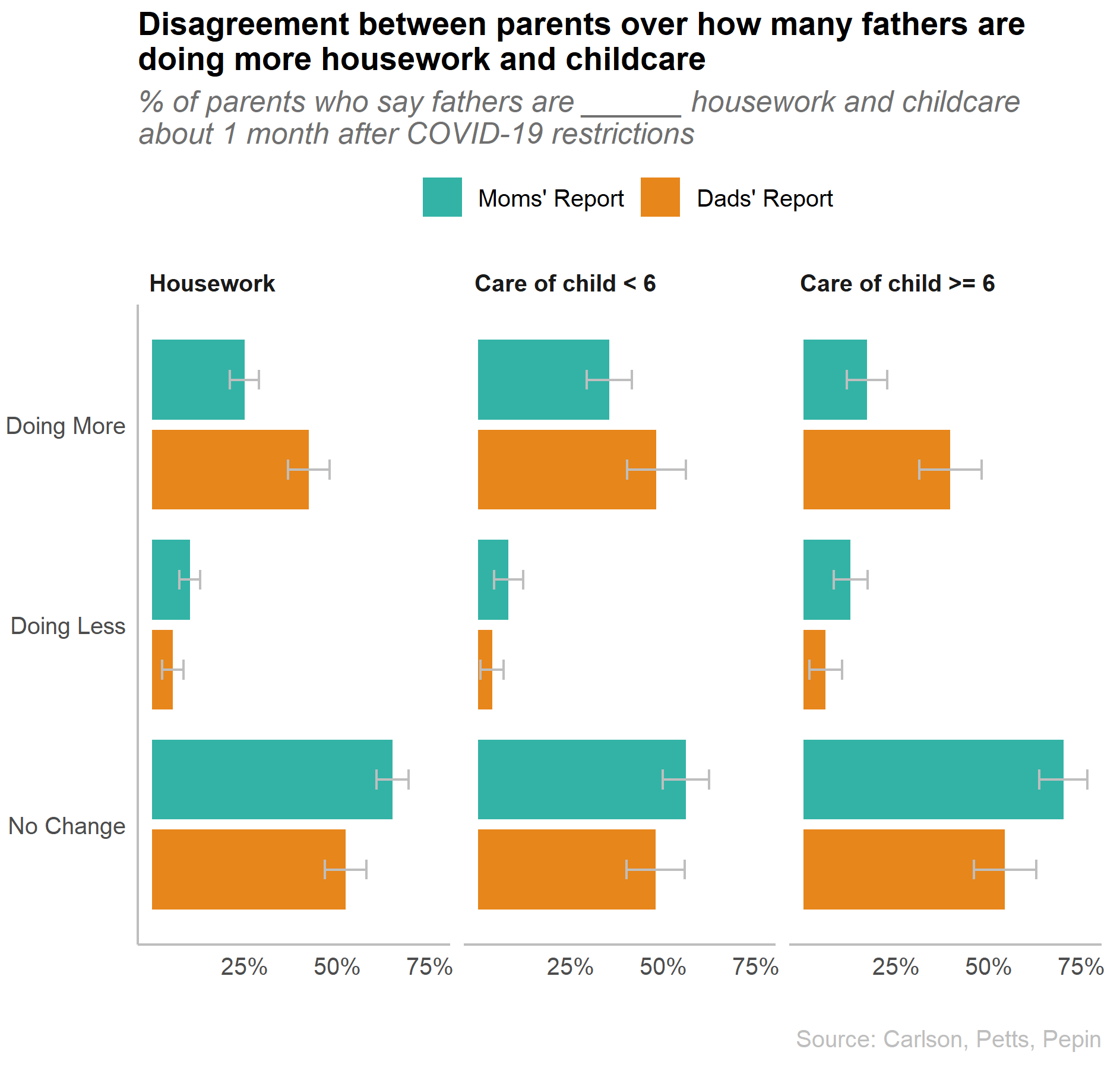July 20, 2020
A fact sheet prepared by Kristi Williams, Ohio State University for the Council on Contemporary Families
Although children appear to be less vulnerable than adults to serious COVID-19 medical complications, new data from the U.S. Census Bureau indicate that they are disproportionately endangered by the pandemic’s economic toll. Households with children have seen significant increases in housing insecurity and food insufficiency. When experienced in childhood, these forms of economic adversity have cumulative negative consequences that endure throughout the life course. With experts predicting another “two long years” until recovery, this is a serious social problem.
Key provisions of the CARES Act, including expanded unemployment benefits and protections against eviction and foreclosure, are set to expire on July 31, 2020, increasing Americans’ vulnerability to poverty, hunger, and homelessness. Without additional economic relief, millions of children face risks to health and well-being that may persist long after COVID-19 is under control.
Food insufficiency in households with children during COVID-19
In the first week of July, almost 15% of American households with children reported not having enough to eat over the past 7 days, compared to just 9% of households without children. This represents a substantial increase since the pandemic: 35% of these households reported they did have sufficient food prior to March 13, 2020.
A vast body of research documents the association of food insufficiency (not having sufficient food) and food insecurity (limited or uncertain access to adequate food) with a range of negative outcomes for children. Children raised in food insecure households are at higher risk of depression, suicide ideation, behavioral problems, deficits in educational and social skills, and poor health as much as 10 years later. Schools play an important role in protecting children from the effects of household food insufficiency by providing free or reduced-price meals to those in need. But it is not clear that all schools will be back in session fulltime this fall. Furthermore, pre-school aged children, who do not normally get school meals, may be particularly vulnerable to the long-range impact of food insecurity, given the rapid cognitive development that occurs between age 0-5.
Housing insecurity in households with children during COVID-19
Housing insecurity—which includes lack of access to affordable housing, homelessness, crowding, and poor housing quality—has also increased during the COVID-19 pandemic, further threatening the health and well-being of American children. As of early July, 15% of mortgaged households with children had a late or deferred mortgage payment the previous month, compared to 6% of mortgaged households without children. The numbers are even more striking for renters. Approximately 26% of households living with children in rental units reported a late or deferred payment in the past month. Housing affordability was already a serious problem before COVID-19, with 25% of all renters and 71% of low-income renters spending more than half of their incomes on housing. As the pandemic continues, these families face a growing risk of foreclosure or eviction.
The residential instability faced by those who can’t afford adequate housing undermines children’s school performance, limits access to preventive services including immunizations, and increases risk of a wide range of developmental and health problems, including drug use and teen pregnancy. One study found that children who experienced multiple residential moves prior to age 7 were almost three times more likely to be diagnosed with depression by age 14. In addition, children in households that lack affordable housing or who experience housing instability (evictions, frequent moves, homelessness) are at higher risk of parental maltreatment, neglect, and abuse.
Housing and food insecurity undermine child and adolescent well-being in part by increasing maternal depression, parenting stress, and harsh parenting. And even parents who have not yet experienced food or housing insufficiency but anticipate doing so as the crisis continues are now feeling the kind of stress that can erode smooth family functioning. In a May study by the American Psychological Association, 70% of parents reported that being able to provide basic needs such as access to food and housing during the pandemic was a significant source of stress.
Increased isolation during the pandemic exacerbates the vulnerability of families with children to the negative effects of housing and food insecurity
Many low-income families rely on support from family and friends in order to make ends meet, but social isolation, uncertainty, and widespread economic strain have made these resources more difficult to access during COVID-19. At the same time, school closures and restrictions on contact have isolated many children from professionals who work with children and serve as mandated reporters for suspected abuse or neglect.
But duration of exposure matters, suggesting that it is not too late to head off many of the negative long-term consequences of the economic toll of the pandemic for American children if we strengthen and expand existing relief measures. The Supplemental Nutrition Assistance Program (SNAP, which replaced the Food Stamp Program) provides funds directly to families to help pay for food but current benefits may be insufficient to meet growing needs. Provisions of the Families First Coronavirus Response Act of 2020 that allowed states to provide free or reduced-price meals to eligible students affected by pandemic-related school closures may need to be extended beyond the 2019-2020 school year. And temporary expansions of employment benefits and eviction protections provided by the CAREs Act are set to expire at the end of July. Investing in America’s children by expanding and extending these important government programs can help to mitigate the long-term social, economic, and health toll of the pandemic on the next generation.
-more-
FOR MORE INFORMATION, PLEASE CONTACT:
Kristi Williams, Ph.D., Professor, Department of Sociology, Ohio State University, williams.2339@osu.edu
Stephanie Coontz, Director of Research and Public Education, Council on Contemporary Families, coontzs@msn.com
LINKS AND ABOUT:
Fact sheet: https://contemporaryfamilies.org/children-economic-toll-covid-19-fact-sheet/
—
The Council on Contemporary Families, based at the University of Texas-Austin, is a nonprofit, nonpartisan organization of family researchers and practitioners that seeks to further a national understanding of how America’s families are changing and what is known about the strengths and weaknesses of different family forms and various family interventions.
The Council helps keep journalists informed of notable work on family-related issues via the CCF Network. To join the CCF Network, or for further media assistance, please contact Stephanie Coontz, Director of Research and Public Education, at coontzs@msn.com, cell 360-556-9223.
Follow us! @CCF_Families and https://www.facebook.com/contemporaryfamilies
Read our blog CCF @ The Society Pages – https://thesocietypages.org/ccf/
July 20, 2020




